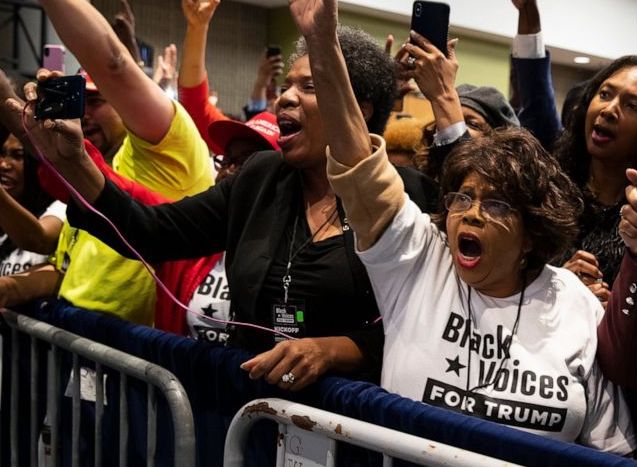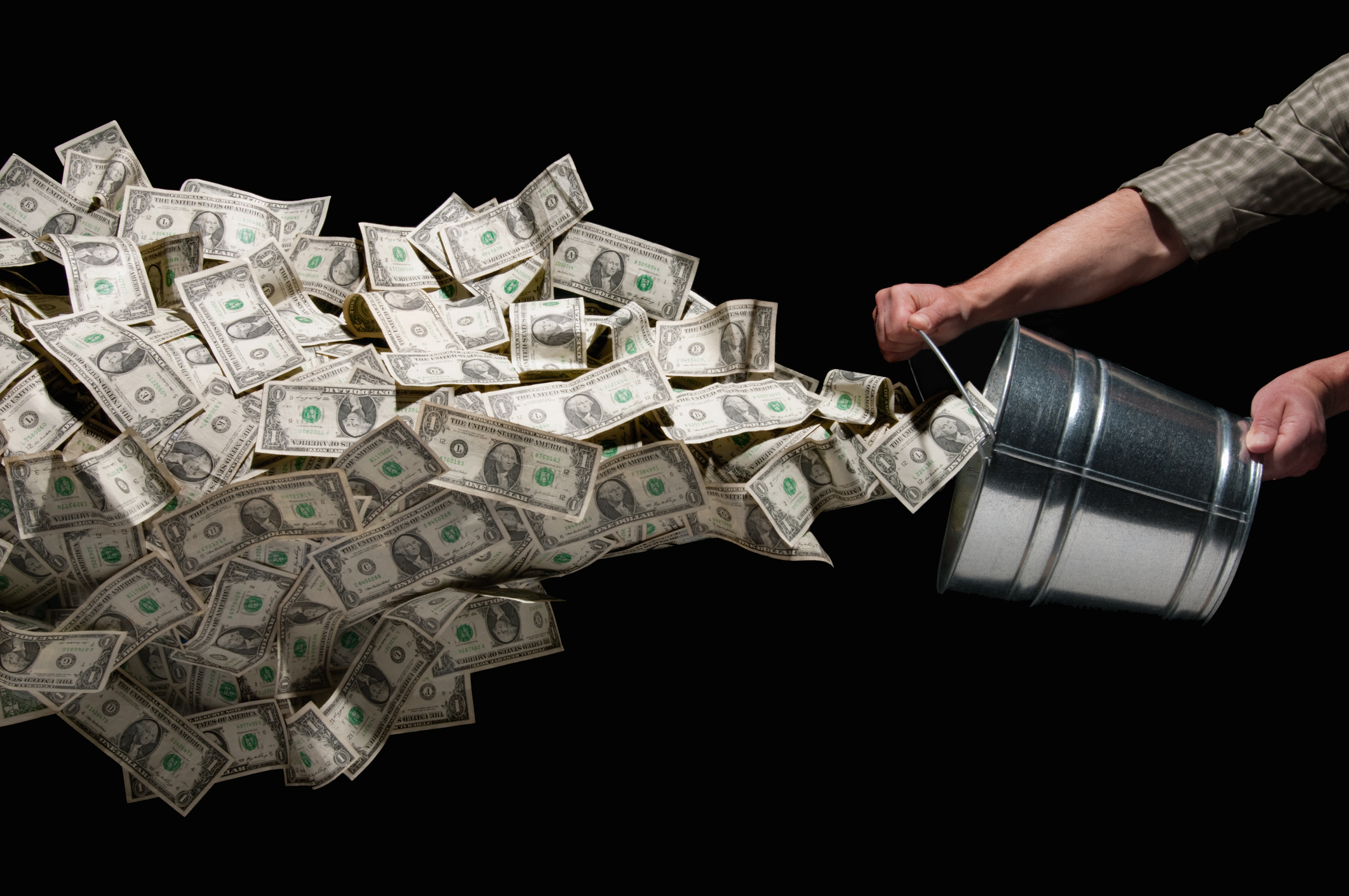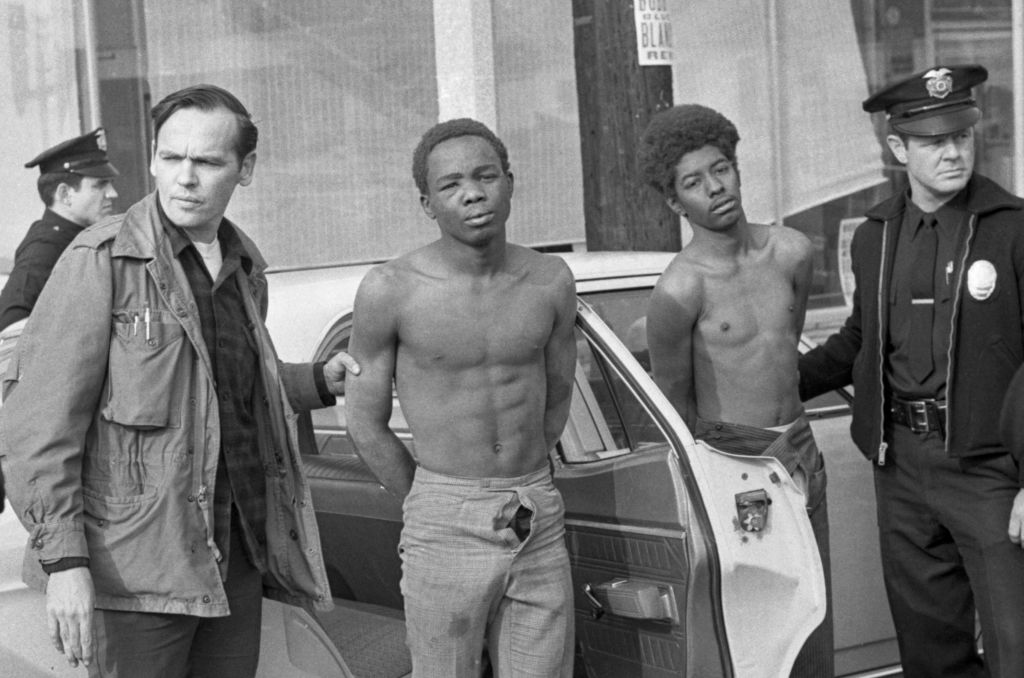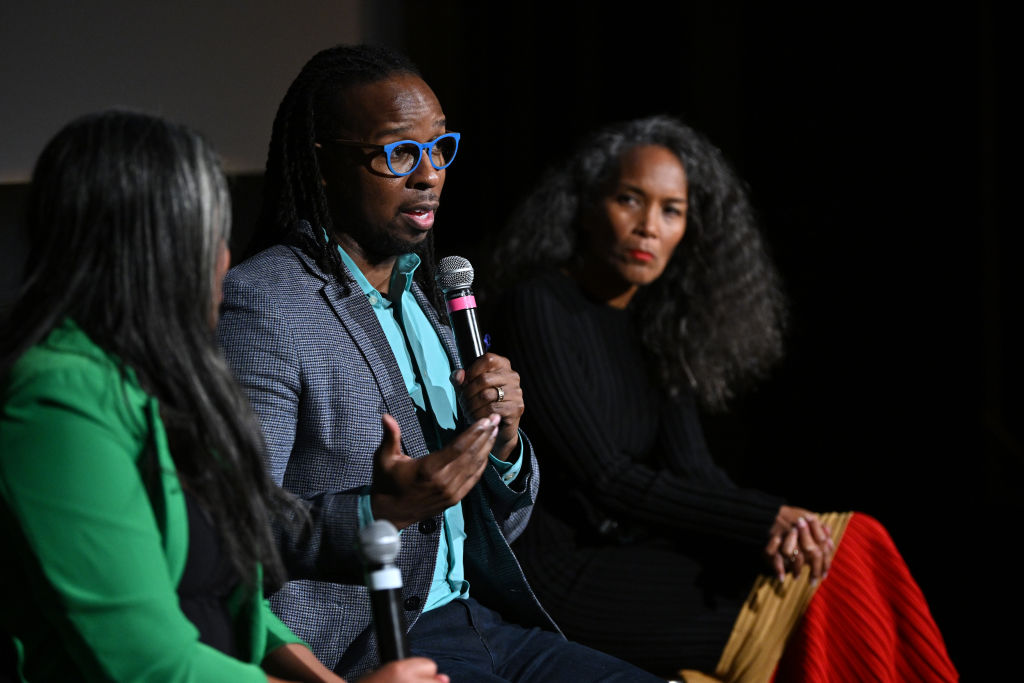Why African Americans should be very, very mad at the Democratic Party
Plagiarizing While Black
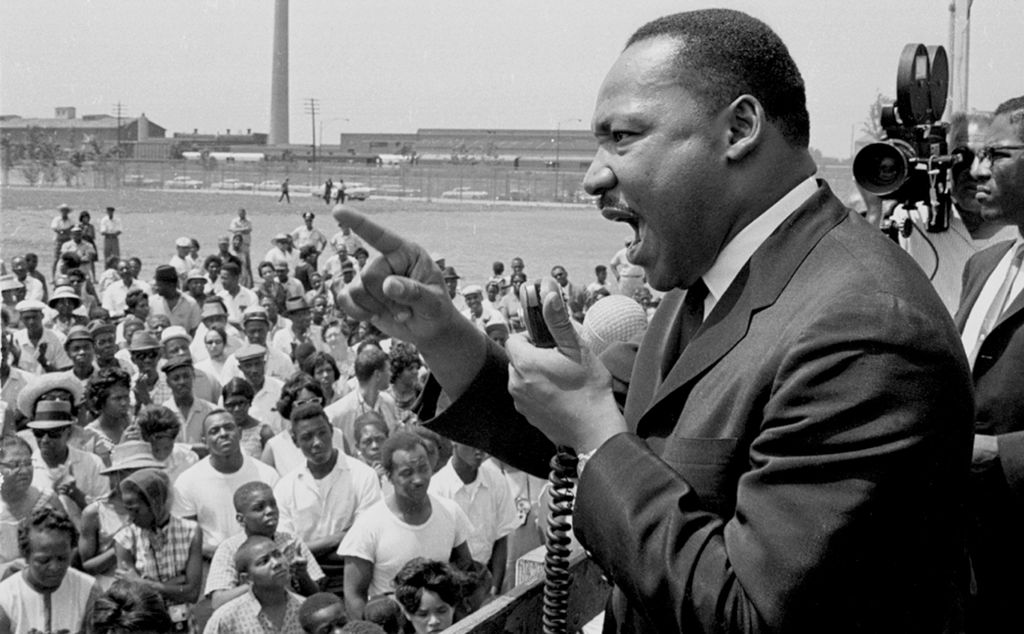
The advance of the Revolution from King to Gay.
Martin Luther King, Jr.’s legacy is complicated. His ability to invoke Christian moral philosophy as part of his activism was felt across the political spectrum. His embrace of Christian pacifism as a method for challenging the Jim Crow regime gave the early civil disobedience movement a moral authority that is hard to deny. “Bomb our homes and threaten our children, and we shall still love you,” he wrote. “But be assured that we will wear you down by our capacity to suffer.”
His moral rectitude isn’t impenetrable. His serial infidelity to his wife is well documented. It has even been charged, though the allegations are contested, that he may have assaulted women. Though some sources on the Right have been too fast and loose with their claims about a case in which much of the evidence is still murky or unknown, this is troubling stuff.
And then there is the plagiarism.
The Facts of King’s Plagiarism
It is worth recalling details of King’s plagiarism, since they are so poorly known in the American public. It was the British press that first broke the story. When the London Daily Telegraph published the first investigative piece in December 1989 describing the evidence that King had plagiarized the work of another graduate student in his thesis, the American press was uninterested, to say the least. Only nearly a year later was the question mentioned in an American publication, Chronicles Magazine. King’s alma mater Boston University responded with an angry letter of denial to Chronicles, claiming that the question had been thoroughly investigated by scholars and the charges found utterly without merit. There was, they stormed, “not a single instance” of plagiarism in King’s dissertation.
Theodore Pappas analyzed the extent of the plagiarism in the document and published a report in the next issue of Chronicles. Pappas later expanded the analysis into a book, Plagiarism and the Culture War. Despite the massive evidence that King had copied verbatim entire chunks of the thesis of Jack Boozer, which was awarded in the same program a few years before King’s, BU, the King Papers Project, and the media continued to claim that the whole thing was just a matter of imperfect citation. But Pappas shows in intimate detail how King stole not only large segments of text from Boozer—including even Boozer’s errors in punctuation—but also basic elements of what he claimed was his own original argument on the theology of Paul Tillich.
The evidence of King’s plagiarism, and the cloud it cast over the legitimacy of the “Dr.” part of his identity, was systematically repressed in the American press. Even when it became clear, after an investigation by Stanford historian Clayborne Carson, who was Coretta Scott King’s appointee to head the Martin Luther King, Jr. Papers Project, that plagiarism was rife throughout King’s publication record, little noise was made in the American public arena. Carson was directed by the King Papers Project advisory board to write an article carefully describing all the evidence of plagiarism in King’s published work. When he submitted it to the Journal of American History, it was rejected.
The culture covered for King. This was the way of the black oral tradition, it was claimed. As Joseph Lowery of the Southern Christian Leadership Conference said in a 1990 New York Times report on the case, “Preachers have an old saying…The first time they use somebody else’s work, they give credit. The second time, they say some thinker said it. The third time they just say it.” In the face of demonstrable evidence—or, rather, mostly without mentioning it and relying on the fact that most readers would be wholly unfamiliar with it precisely because of the lax reporting—from Pappas that King’s theft included stealing some of Boozer’s ideas and from Carson that it was systemic in King’s work, including his speeches and sermons, it was consistently claimed that these were only a few minor examples, constituting no real offense. The Wall Street Journal went so far as to suggest that King’s plagiarism, far from constituting any kind of compromising statement about his character, was actually “more about the rest of us.” A Chicago Tribune writer characterized the scandal in this manner: “Oh no. Once again the late Rev. Martin Luther King Jr. is accused of being human,” as though what King did was representative of all academic scholarship.
Even Carson, who had furnished much of the evidence against King, engaged in impressive mental acrobatics to exonerate King. The plagiarism during his graduate student career did not amount to much, Carson claimed, because “his professors did not expect originality.” Ultimately, King’s fervent admirers chanted, this did not much matter because King’s position as a civil rights icon was simply too important for mere charges of ethical misconduct on a systemic scale to matter. Boston University admitted eventually that King had plagiarized, and substantially, but it refused to revoke his degree for exactly that reason.
Pappas’s book can be consulted on archive.org. It makes for revealing reading for anyone unfamiliar with the details of the King plagiarism material—that is, just about anybody in American society who relies on mainstream media and academic sources for their information about what is and what is not worth knowing.
Politically Correct Plagiarism Then and Now: The Gay Case and the Advance of Woke Radicalism
The King story is informative for us now not just with respect to a fuller consideration of his legacy on MLK Day, but also considering the recent news cycle involving former Harvard President Claudine Gay. When Gay was charged, with abundant evidence, of serial plagiarism over the entirety of her academic career—more than half of her published academic journal articles have been found to contain plagiarized material—the reaction in mainstream media and on the cultural Left was perfectly consonant with that which greeted the King charges more than three decades ago. But the case is still more brazen now, and it comes from still more corners of elite American culture, and it is still more dismissive of basic ethical standard and responsibility.
It is de rigueur for American mass media to circle the wagons whenever any high-status progressive figure, especially if they are non-white, comes under fire for their misdeeds. Harvard echoed Boston University 35 years ago and risibly claimed they had already looked at all the so-called evidence of Gay’s plagiarism and found it a complete fabrication. This claim was even more astonishing than that made by BU, however, precisely because today’s communicative technology made all the evidence instantly available to anyone in the public with a Wi-Fi connection. When BU denied the evidence, only a handful of people in the press working honestly on the matter knew they were prevaricating. For Harvard to take the stance they took, knowing that anyone could instantly consult evidence demonstrating how absurd their statement was, required an immense faith in the power of woke culture to sway opinion.
Finding academics willing to wholly dismiss the plagiarism case against Gay, and willing to follow the Harvard corporation in refusing even to use the “p” word to describe what she did, is now much easier than it would have been 35 years ago, precisely because the professoriate has been stewing in the soup of multiculturalism and affirmative action philosophy for those decades. Even professors who admit what Gay did was plagiarism will insist there should not have been any real concern over it. For example, Stephen Voss, one of the faculty members Gay plagiarized, engaged in acrobatics almost as interesting as Clayborn Carson’s in a recent New Yorker interview. Voss, faced with a rare interviewer determined to push hard on the ethical importance of the matter, found himself admitting that plagiarism is academic dishonesty, but then defended his refusal to use the term publicly to describe what Gay did. “Yes,” Voss told the interviewer, “[what Gay did] was technically plagiarism, but this is no big deal.” The evident fear Voss experiences imagining himself as an academic on the Left being labeled as someone who dared to admit that Christopher Rufo’s findings about Claudine Gay’s plagiarism are factually accurate is depressing to watch, but instructive.
In the King case, politics was certainly invoked as an illegitimate motivation for pursuing the evidence by his defenders, but in a less unified and more complex way. In the Gay case, even locating a mainstream media site or university figure on the Left willing to comment on the substance and the entirety of the evidence was a near impossible task. Many straightforwardly talk of what happened to Gay in the rhetorical extremism of the contemporary woke Left. The act of noticing that Gay plagiarized became, in the view of such people, an act of racist violence right out of the Jim Crow past. “She was brought down by a mob,” inveighed her Harvard colleague Ryan Enos. Not satisfied with that level of hyperbole, Ibram X. Kendi further specified that it was evidence of “a racist mob attack[ing] a Black person.”
In the perspective of today’s race radicals, only “anti-Blackness” can explain the outcome of the Gay case. Black female students at Harvard refuse the evidence entirely and categorize Gay as “a scapegoat for everything.” Gay’s plagiarism, we are told, cannot tarnish her “Black excellence,” and her fall from grace is all about a “MAGA hit list” (note again the use of the language of violence).
Gay, unlike King, is around to comment on the case against her academic work. She made clear that she believes this is all about something other than her failure over the entirety of her career to adhere to basic ethical rules of scholarly conduct. “Racial animus” is to blame, she wrote in her letter of resignation, and she claimed that “scholarly rigor” is one of her “bedrock values,” despite the fact that her entire academic career has been built on copying the work of others.
The movement to destroy traditional ethical academic standards has advanced considerably since the King scandal broke. At Harvard, it appears that Claudine Gay herself was responsible for watering down the university’s standards on plagiarism in such a way as to provide the university in advance with the tools they used to try to salvage her presidency against the charges. How far are we from the day when the DEI radicals simply outright reject the ethical standard implied in charges of plagiarism? Perhaps seeing the borrowing of the words and ideas of others without attribution as an ethical problem is in fact just one more aspect of a pernicious white supremacist culture that the righteous are called to resist. Why privilege individual accomplishment and uniqueness over the collective intellectual production of the group? Perhaps King and Gay are not only innocent of the charges brought against them, but even intellectually superior to those who do not plagiarize in their ability to tap into group consciousness and transcend Western ideals of individual autonomy and accomplishment. As absurd as this might sound—and it is absurd—don’t bet against this.
This is the world that the DEI revolution has produced in the university: If opponents of the DEI regime notice that the sun rises in the east and sets in the west, this observation must be denied. If a revered woke figure is accused of anything unethical, the first place to look for an explanation is the racism of the accusers. The university has become the site of naked politics, and all position-taking is determined by which side you’re on. The King plagiarism case was an early episode in this development. The Gay case shows how much farther we have fallen.
The American Mind presents a range of perspectives. Views are writers’ own and do not necessarily represent those of The Claremont Institute.
The American Mind is a publication of the Claremont Institute, a non-profit 501(c)(3) organization, dedicated to restoring the principles of the American Founding to their rightful, preeminent authority in our national life. Interested in supporting our work? Gifts to the Claremont Institute are tax-deductible.
If they don't act, white Americans will soon be subsidizing their own destruction.
From the Black Panthers to Hamas, the radical Left loves to lie about terrorist groups.
It’s not about hypocrisy—it’s about the Left’s warped view of justice.
The Democrats’ appeal to racial resentment is wearing thin.
In the calculus of blame, whites are the new Jews.

